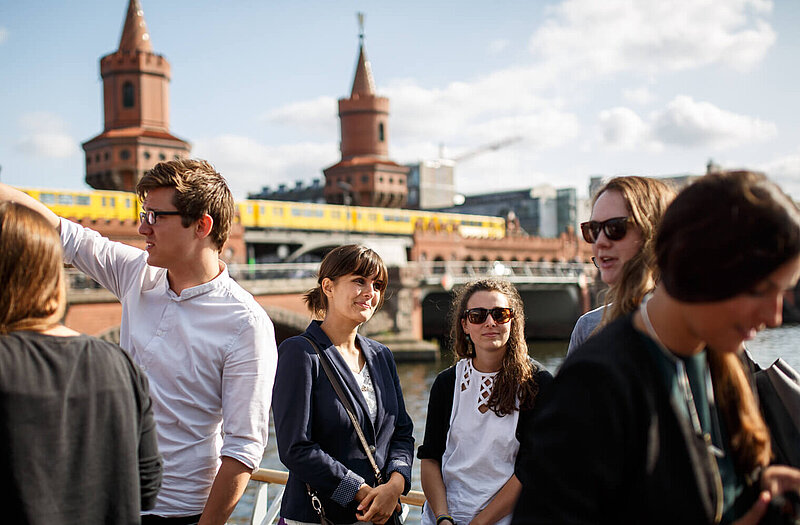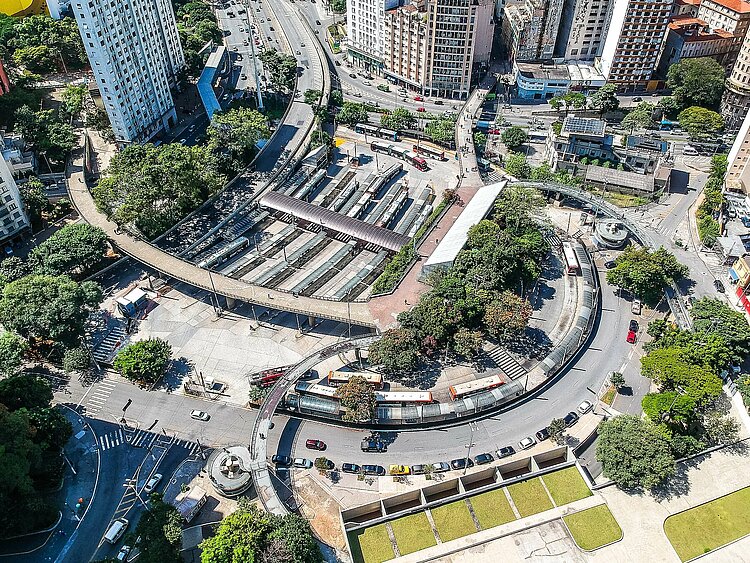
In June 2019, the Hertie School's Executive Education team welcomed participants from Costa Rica, Argentina, Peru and Colombia for a week-long module on smart governance and politics. The course was one component of a larger programme in partnership with Cives Solutions and Universidad Austrial.
Check out our Smart Governance and Politics Course

'Smart city' is a reform concept that has gained traction across the world. Harnessing the potential of digital technologies for improving the ways cities are run promises fundamental transformations in urban governance and a gear change in capacity development. But how much of this hype has stood the test of empirical analysis? What are the potential benefits, risks and unintended side effects of smart city strategies? And what does it take to make smart city strategies work? This course examines these issues, reviews key conceptual debates and explores the practices of smart cities.
The Hertie School's Executive Education team welcomed participants from Latin America for a week-long module on the key challenges of smart cities and how to overcome them. The wider programme takes place in Buenos Aires and Berlin in partnership with Cives Solutions and Universidad Austral. Watch this video to learn more about it.
By 2020, most of the world’s population is expected to be living in cities. This steady growth of the urban population puts pressure on services and worsens the already existing problems of congestion, urbanisation, pollution and unequal social integration. According to the latest urban air quality database, 98% of cities in low- and middle-income countries with more than 100 000 inhabitants have bad air quality, in high-income countries that percentage decreases to 56% (World Health Organization 2016). Traffic congestion and the labour market are the issues that European Union citizens complain about most according to the Urban Audit from 2015. These conditions have compelled governments to rethink urban governance and to harness the potential of ICT-driven innovations to improve the livability, sustainability, and economy of urban spaces.
'Smart city' does not yet have an established definition but it can broadly be defined as a city strategy that uses digital technologies to conceive of and implement public service and governance innovations to make cities more efficient and sustainable, as well as to improve the well-being of city residents and boost business opportunities. The term 'smart city' is becoming a catchphrase and initiatives and platforms based on this concept are mushrooming. Although this process should be human needs driven, various companies and developers of technology such as IBM, Cisco, Intel and Siemens see genuine business opportunities in 'selling' their own smart city programmes. Some concerns have thus arisen regarding the size of the role of such corporate entities and that this can potentially challenge democratic oversight.
The programme held in Berlin in June featured various experts and included site tours. Eliska Drapalova, a Postdoctoral Fellow at the Hertie School, gave a lecture on the underlying logic of smart governance. Eliska also explored key policy areas and issues for which smart cities are said to offer solutions such as accountability, responsiveness and participation. One highlight was the visit from Her Excellency, Lydia Peralta Cordero, Ambassador of the Republic of Costa Rica to Germany, who joined a vibrant discussion on smart governments. Another was the inspiring lecture on the strategic challenges and implementation of smart cities in Germany by Thomas Losse-Müller, Senior Fellow at the Hertie School.

“We have had a great time here in Berlin – we gained new experience to apply in the cities of Latin America. There is an important opportunity to generate collaboration between different stakeholders who today are directly participating in smart cities in Europe. They have the experience that we can use and put in practice in Latin America.”
Nicolas Siafas, Secretary Rapporteur of the Commission of Modernisation, Citizen Participation and Technological Innovation at the Senate of the Province of Buenos Aires.

“The topics exceeded my expectations. I thought the programme would be rather theoretical, but it has been very practical. Excellent lecturers. I’m truly happy.”
Eugenia Michielotto, Director at the Single Regulator Authority of Public Services at Buenos Aires City
Partner
Cives Solutions aims to generate spaces for innovation for people, allowing them to strengthen their civic identity and equipping them with new tools. Cives Solutions provides consulting, research, project development and academic teaching services which promote active participation in areas where citizens can significantly increase economic activity.
Learning goals, formats and outcomes
The wider programme analyses the technological and political developments related to the topic of sustainable and smart cities and monitors the implementation of digital strategies in cities. The primary focus is on broader citizen participation and citizen-oriented solutions in urban planning, achieved through integration via smart technologies.
The seminar in Berlin in June gave participants the opportunity to extend their networks and to connect with like-minded entrepreneurs, directors and project leaders, professionals, researchers and government officials working with social development and innovation programmes in urban settings in Latin American countries.
Faculty and experts
As well as various external speakers, the programme included sessions with:
- Thomas Losse-Müller, Senior Fellow, Hertie School
- Eliska Drapalova, Postdoctoral Fellow, Organisation, Management and Leadership Cluster
Contact us today to discuss customised training solutions for your team.

